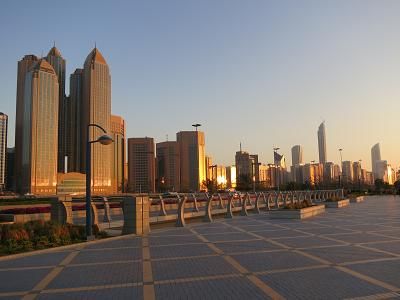UAE partners with leading countries on sustainable cities
Second meeting of Global Sustainable Cities Network outlines cooperation on waste-to-energy initiatives and demand-side management

Government agencies and companies from the UAE, Denmark, Finland, France, and Sweden have outlined cooperation on waste-to-energy initiatives and demand-side management in the second meeting of the Global Sustainable Cities Network which formed part of the 2014 Abu Dhabi Sustainability Week.
Jointly hosted by the UAE Ministry of Foreign Affairs and Masdar, the Abu Dhabi-based renewable energy company, the series of workshops and site visits evaluated policy and technology options to enhance market growth and cross-investment in the two fields. A study on the economic potential of waste heat reuse in the UAE and GCC was also announced.
“Cities are the primary arena of clean energy deployment, with enormous commercial potential for products and services that address resource efficiency and management. We have to get both the policies and the technologies right,” said UAE Minister of Energy Suhail bin Mohamed Faraj Fares Al Mazrouei, who opened the meetings.
The GSCN is an initiative under the Clean Energy Ministerial (CEM), a coalition of major and innovative economies to drive growth of the clean energy sector. Under the network, federal governments facilitate knowledge-sharing and partnership among select domestic entities with policymaking and procurement responsibilities.
The Abu Dhabi meeting follows from the 2013 GSCN meeting in Stockholm, which established the working groups on waste-to-energy and demand-side management.
The GSCN discussions focused on levers to drive greater efficiency in the two fields, looking at measurement and verification software, pricing, performance standards, consumer education, and technology selection.
Delegates leveraged specific local examples as market case studies, including Sharjah’s Bee’ah, the UAE’s leading integrated waste management company, and Abu Dhabi Urban Planning Council’s redevelopment of Mina Zayed as a sustainable community. Tabreed, the UAE cooling company, and Dubai Aluminium (Dubal), also introduced initial work on capturing industrial waste for cooling through absorption chillers, either onsite or through district energy systems. The UAE will expand the work into a study undertaken with the Swedish Energy Agency, the International Renewable Energy Agency (IRENA), and other stakeholders.
The network plans to meet again in fall 2014.





